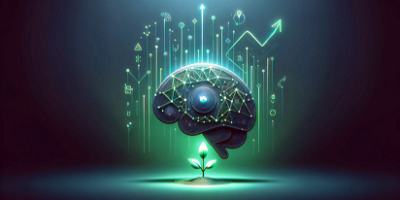The world stands at the precipice of a profound transformation, driven by the relentless march of Artificial Intelligence. This isn’t merely another technological upgrade; it’s a fundamental reshaping of industries, economies, and the very fabric of work. Global spending and investment in AI are projected to explode by a staggering 60% year-over-year in 2025, reaching an estimated $360 billion, according to forecasts by UBS. This monumental influx of capital is not only advancing AI capabilities but also dramatically reshaping the job market, creating unprecedented demand and high earning potential for skilled professionals.
As businesses across all sectors – from tech giants and financial institutions to healthcare providers and marketing firms – race to integrate AI, the need for talent capable of building, managing, and leveraging these powerful tools is skyrocketing. While roles like AI/Machine Learning Engineer and Data Scientist remain foundational, new, specialised positions are emerging at the forefront of this transformation. The World Economic Forum’s (WEF) Future of Jobs Report 2025 underscores this seismic shift, predicting massive structural labour market churn – a staggering 22% of today’s jobs globally – between 2025 and 2030, even amidst a net positive outlook for job creation. While advancements in AI, alongside broadening digital access and robotics, promise unprecedented efficiency and innovation, they also fuel economic uncertainty and exacerbate existing skills gaps.
For Africa, a continent brimming with the energy and potential of the world’s youngest population, this global inflection point presents both immense opportunity and critical challenge. The narrative cannot simply be about adopting AI for purely capitalistic gains. Instead, Africa must accelerate its journey into the algorithmic age by consciously embedding its unique values, ensuring technology serves as a catalyst for inclusive progress, youth engagement, and a future where every individual is valued.
The Evolving Global Job Landscape: AI Takes Center Stage
The WEF report paints a clear picture: automation and AI are irrevocably altering job demands. While routine clerical and administrative roles face the steepest declines, a new constellation of AI-centric professions is rapidly emerging, demanding novel skills and offering significant earning potential. Analytical thinking, creativity, resilience, and leadership remain paramount human skills, but proficiency in AI and big data, technological literacy, and cybersecurity are now non-negotiable growth areas. The skills required for tomorrow’s jobs are evolving rapidly, with nearly two-fifths (39%) of worker skills expected to change by 2030.
This transition creates lucrative opportunities, especially in roles directly harnessing AI’s power. Consider the potential within these rapidly expanding fields:
- AI Prompt Engineer ($50 – $100/hr): Become an AI whisperer, mastering the art of communication with intelligent systems. Craft precise prompts to guide AI, unlock its creative potential, and solve complex problems in novel ways.
- AI Software Development ($100 – $200/hr): Architect the future. Build the intelligent algorithms, platforms, and applications that form the backbone of the AI revolution, translating ideas into impactful technological realities.
- AI Design ($100 – $200/hr): Shape the human-AI interface. Design intuitive, ethical, and engaging experiences for AI tools, ensuring technology is accessible, user-friendly, and truly serves human needs.
- AI Video Editing ($100 – $200/hr): Reimagine visual storytelling. Leverage AI to automate complex editing tasks, enhance production workflows, and unlock groundbreaking creative possibilities in film and digital media.
- AI Writing ($100 – $200/hr): Collaborate with AI to create compelling narratives. Generate everything from insightful reports to captivating marketing copy, augmenting human creativity with algorithmic speed and insight.
- AI Content Marketing ($200 – $300/hr): Master the art of AI-powered influence. Develop and execute data-driven marketing strategies, using AI to personalise content, predict trends, and maximise engagement in a crowded digital landscape.
- No-Code AI Automation ($300 – $400/hr): Democratise AI’s power. Build sophisticated AI-driven automations and streamline complex business processes using intuitive visual tools – no coding expertise required.
- AI Data Analysis ($300 – $400/hr): Decode the data deluge. Employ AI to sift through vast datasets, identify hidden patterns, generate predictive insights, and empower organisations to make smarter, faster decisions.
- No-Code AI Agent Development ($400 – $500/hr): Create intelligent collaborators. Design and deploy autonomous AI agents using accessible no-code platforms, building digital assistants capable of tackling complex, multi-step tasks independently.
Connecting Investment to Earnings
These roles, commanding impressive hourly rates fuelled by surging global AI investment, represent just the tip of the iceberg. The true potential lies in applying these skills to contextually relevant challenges and opportunities. This capital fuels:
- Intense Demand: Companies are aggressively hiring to gain a competitive edge through AI.
- Skill Scarcity: The pool of professionals with deep expertise in areas like prompt engineering and agent development is still relatively small compared to the demand.
- High Impact: These roles directly contribute to harnessing the value of AI, impacting product development, operational efficiency, and strategic decision-making.
- Fierce Competition: Businesses are competing fiercely for top talent, driving up compensation packages.
Africa’s AI Imperative: Progress Anchored in Values
While the economic incentives are compelling, Africa’s engagement with AI must transcend mere profit-seeking. The continent has a unique opportunity – and indeed, a responsibility – to leverage this technology to address its specific needs and build a future reflective of its rich cultural tapestry and communal values.
This means:
- Prioritizing People: AI development should focus on augmentation, enhancing human capabilities rather than outright replacement. This requires investing heavily in reskilling and upskilling programs – the WEF report notes that 59 out of every 100 global workers will need training by 2030 – tailored to African contexts, equipping the youth with skills like critical thinking, creativity, collaboration, and AI literacy. We must bridge the skills gap, identified as the biggest barrier to transformation globally.
- Solving Local Challenges: AI offers powerful tools to tackle pressing issues in African healthcare, agriculture, education, logistics, and financial inclusion. Development should be geared towards creating solutions that improve lives and livelihoods on the continent.
- Fostering Inclusive Innovation: Ensure that AI benefits all segments of society. This requires deliberate efforts in Diversity, Equity, and Inclusion (DEI), developing AI systems free from bias, and creating accessible platforms that empower entrepreneurs and communities often left behind by previous technological waves. Initiatives must focus on groups like women, youth, those with disabilities, and those from low-income backgrounds.
- Embedding Ethical Frameworks: Africa must proactively shape the ethical guidelines governing AI deployment on the continent, ensuring alignment with local values, data sovereignty, privacy, and accountability.
- Promoting Sustainable Development: Leverage AI to advance environmental stewardship and support the green transition, tackling climate change impacts and building resilient infrastructure.
Charting the Course Forward
For professionals across the globe, the AI boom presents a significant opportunity, demanding continuous learning and adaptation to ride this transformative wave. The algorithmic horizon beckons. For Africa’s vibrant youth, the rise of AI represents not a threat, but a call to action – an invitation to become architects of a future where technology empowers, connects, and uplifts. This requires a concerted effort from governments to invest in digital access, education, and skills training; from businesses to adopt AI responsibly and invest in their workforce; and from individuals to embrace lifelong learning and cultivate the critical, creative, and collaborative skills needed to thrive.
Let us move forward not merely as consumers of global AI trends, but as active builders and shapers, ensuring that Africa’s AI future is not only prosperous but also progressive, equitable, and deeply rooted in the values that define the continent. The journey is complex, but the potential to build a truly engaged, valued, and thriving future for Africa’s next generation is unparalleled.
The question isn’t if AI will shape Africa’s future, but how. Will we be passive recipients, or active creators? Will we prioritize short-term gains or long-term, inclusive, value-driven development?
The future isn’t yet coded. It’s being written now, in classrooms, innovation hubs, policy discussions, and countless individual decisions across the continent. This is your invitation to join the conversation, to pick up the tools, to learn, to build, to debate, and to lead.
What are your thoughts on harnessing AI for Africa’s unique path forward? How can we ensure technology serves our values?
- Leave a comment below and share your perspective.
- Like this post if it resonated with you.
- Share this article with others who need to be part of this crucial dialogue.
- Subscribe to [Your Substack Name] for more insights on navigating the future of work and technology in Africa.
Let’s not just prepare for the future; let’s actively build the African future we want to see – intelligent, inclusive, and undeniably ours.
Credit: Substack










